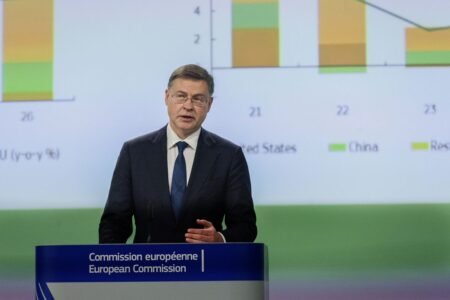(LUXEMBOURG) – An assessment of EU action to support the development of artificial intelligence was under way Monday, as EU auditors examine whether EU plans are conducive to positioning Europe as a global leader in AI.
The European Court of Auditors says artificial intelligence is key to the EU’s digital transition, its industrial policy and its strategic autonomy. While the ‘revolution’ is underway, Europe is still lagging behind on key aspects such as financing, it adds.
In the EU, the amount invested in AI is estimated to be half as much as the amount invested in the USA. Less than 1 in 10 businesses in the EU (8%) were using AI in 2021, with significant differences between EU countries. While almost 1 in every 4 businesses in Denmark (24%) used AI and over 15% in Portugal (17%) and Finland (16%), this proportion fell below 5% in the Czech Republic, Greece, Latvia and Lithuania (all 4%), in Bulgaria, Estonia, Cyprus, Hungary and Poland (all 3%), and in Romania (1%).
“Artificial intelligence will undoubtedly bring many considerable benefits in a wide range of sectors,” said Mihails Kozlovs, the ECA member who will lead the audit, “and the stakes for EU competitiveness are too high to get it wrong. Our audit will determine whether sufficient effort is being made to prevent Europe from missing the boat in this major technological revolution”.
To be able to compete in the race, the EU envisaged allocating nearly 10 billion from its budget between 2014 and 2027. In addition, at least 20 % of the 724 billion being made available under the pandemic recovery and resilience facility (RRF) will finance the EU’s digital transition. Finally, the InvestEU Fund will mobilise public and private investment through an EU budget guarantee of 6.6 billion for research, innovation and digitisation. All in all, the objective is to gradually increase investments in AI to 20 billion per year in the course of this decade.
The audit will check whether key conditions are in place in the EU to boost the development of AI. In particular, auditors will examine whether the European Commission ensures that EU money effectively supports the creation of a proper and competitive European artificial intelligence ecosystem, taking into account the strategic importance of AI and the potential risks to safety and security.








